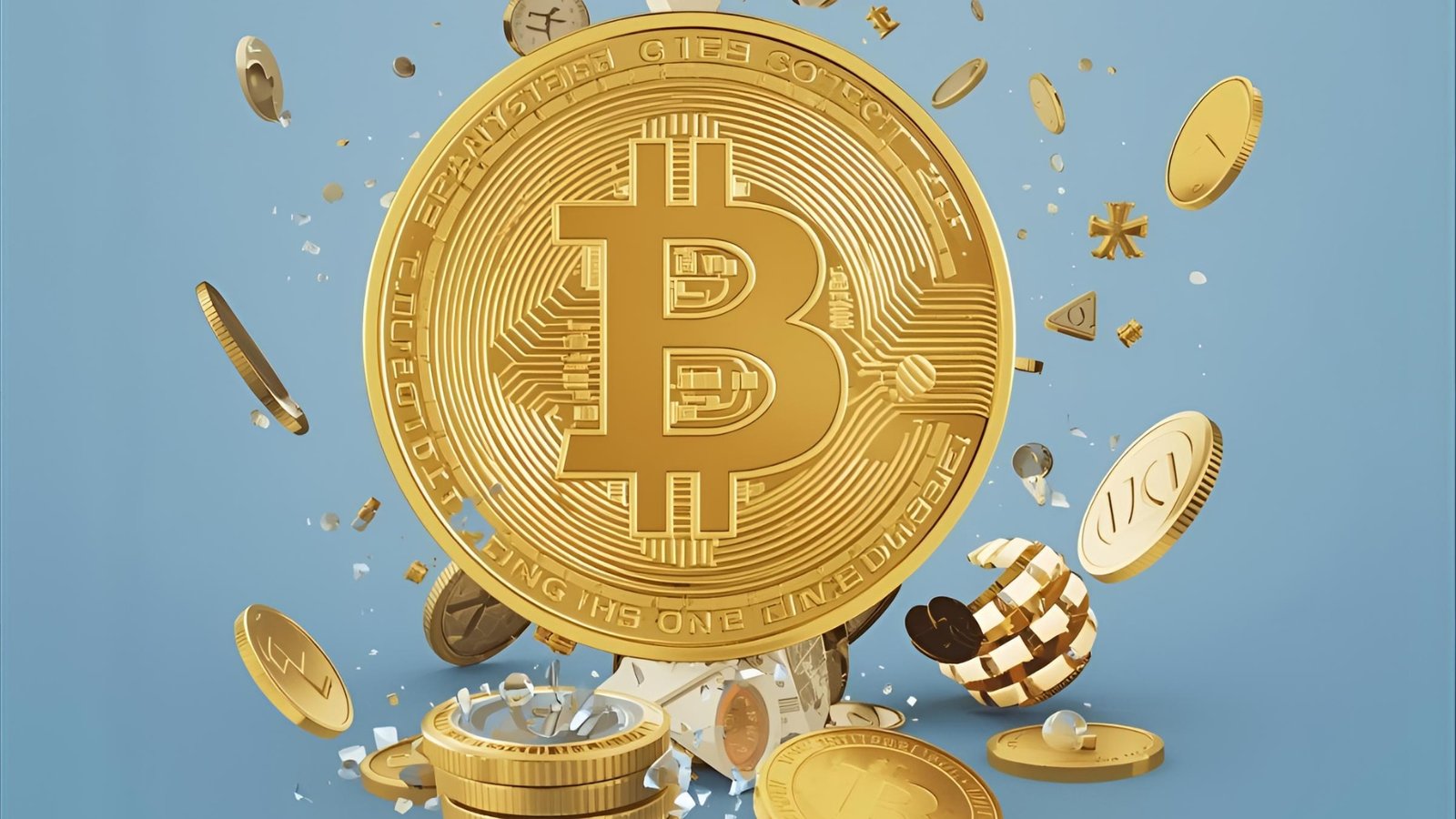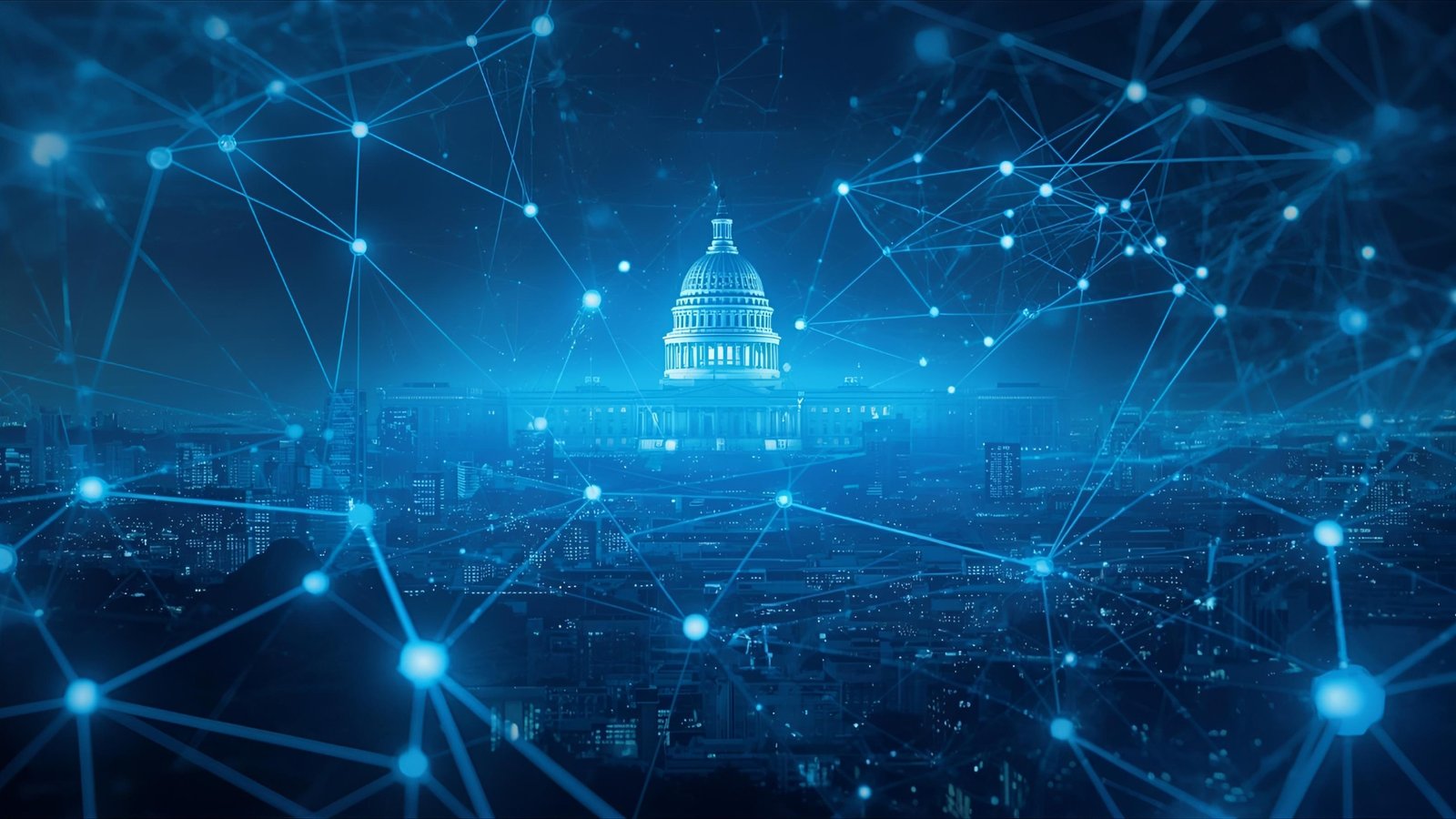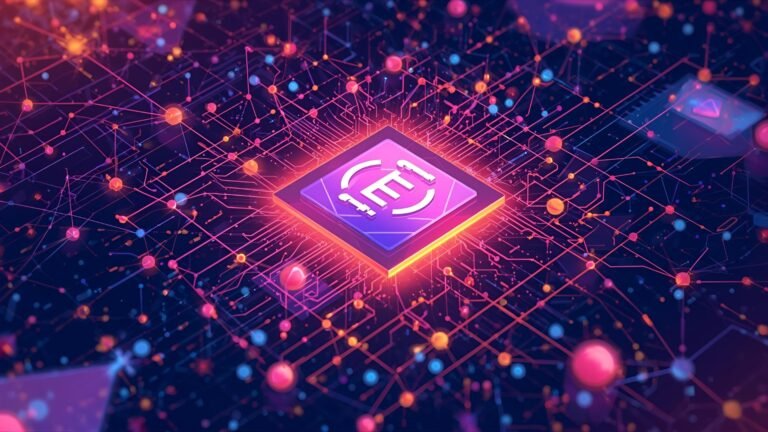If you’ve asked yourself why is DeFi important, you’re already on the edge of a financial shift that rivals the arrival of online banking. Decentralized finance—often shortened to DeFi—reimagines money as open, programmable, and borderless. Instead of relying on banks and brokers, DeFi uses blockchains and smart contracts to execute transactions automatically and transparently. This simple change unlocks an ecosystem of permissionless apps where anyone with an internet connection can save, borrow, trade, insure, and invest, often without an intermediary.
But why is DeFi important beyond the buzz? It matters because it confronts old pain points: limited access to financial services, high fees, slow settlement, opaque risk, and rigid infrastructure. DeFi invites developers to compose entirely new financial products like Lego bricks, while inviting users to retain self-custody of assets through non-custodial wallets. It’s not just about speculation or yields; it’s about redesigning finance so it’s programmable, interoperable, and—crucially—available to more people.
In this in-depth guide, we’ll unpack why DeFi is important, how it works under the hood, where its benefits and risks lie, and where it’s headed next. Along the way, we’ll weave in concepts like stablecoins, liquidity pools, on-chain transparency, and the composability that makes DeFi evolve at internet speed.
What Is DeFi, Really
At its core, DeFi is a stack of open-source protocols running on public blockchains, most prominently Ethereum, though many other networks host DeFi apps. The key ingredient is the smart contract—code that self-executes when preset conditions are met. Put simply, a bank’s core functions—like taking deposits, making loans, and facilitating trades—are broken into small, auditable programs anyone can interact with.
To understand why DeFi is important, consider the contrast with traditional finance. Banks depend on centralized ledgers and gatekeepers. DeFi replaces those ledgers with a blockchain, distributes governance via tokens, and enforces rules through code. There’s no single point of failure, no banker behind a desk to approve or deny access, and no nine-to-five schedule. The system runs around the clock and across borders.
The Building Blocks
Three pillars explain why DeFi is important to users and builders alike:
-
Programmable money: With smart contracts, money behaves like software. Developers can launch lending markets, derivatives, and insurance primitives that snap together like modules.
-
Open access: Any wallet can interact with DeFi protocols. This is the essence of permissionless finance and a major reason why DeFi is important for global inclusion.
-
Transparency: Positions, collateral ratios, and liquidity are visible on-chain. This radical visibility reduces information asymmetry—one more reason why DeFi is important compared with opaque legacy systems.
Financial Inclusion Without Gatekeepers

The most human answer to why is DeFi important is access. Billions live with limited or no banking services due to geography, credit history, or paperwork barriers. DeFi apps, by design, replace in-person vetting with cryptographic proofs and wallet interactions.
In a DeFi lending market, for example, you can borrow using overcollateralized crypto assets. You don’t need a credit score, an employer letter, or a local branch. While that design has its trade-offs, it demonstrates why DeFi is important for enabling access in places where the cost of compliance or distribution blocks traditional lenders.
Inclusion Meets UX Reality
Of course, inclusion requires usability. Early interfaces were clunky, fees were volatile, and risks were poorly understood. Yet the trajectory—cheaper transactions on Layer-2 networks, smoother non-custodial wallets, and fiat on-ramps—points to a user experience that makes access genuine, not theoretical. That growth vector underscores why DeFi is important long-term.
24/7 Markets and Instant Settlement
Ask a trader why DeFi is important and you’ll hear about non-stop markets. Exchanges, lending pools, and options protocols operate 24/7. When you swap tokens on an automated market maker (AMM), the trade settles within minutes or seconds depending on the network. There’s no T+2, no waiting for back-office reconciliation.
AMMs and Liquidity Pools
AMMs are a hallmark of decentralized exchanges (DEXs). Instead of matching buyers and sellers, AMMs use liquidity pools funded by users who earn trading fees. The pool’s pricing algorithm adjusts based on supply and demand. This elegant model is a tangible example of why DeFi is important: it extends market making to anyone, not just institutions.
Self-Custody and Censorship Resistance
Another facet of why DeFi is important is control. Holding funds in a non-custodial wallet means you—not a bank or broker—hold the keys. Your access can’t be frozen by a customer service glitch, an outage, or a local policy change. In turbulent times, this property can be profound.
The Responsibility That Comes With Control
Self-custody is empowering but unforgiving. If you lose your seed phrase, there’s no password reset button. Modern solutions like social recovery, hardware wallets, and multi-sig setups mitigate that risk. Even so, the shift in responsibility is part of why DeFi is important: it reframes finance as a personal, sovereign choice.
Transparent Risk You Can Verify
In traditional finance, you usually learn about risk after the fact. DeFi flips that script. Protocol reserves, collateralization ratios, and treasury holdings are visible on-chain in real time. That verifiability is a central reason why DeFi is important for investors and analysts alike.
On-Chain Data as a Public Good
Because everything is auditable, third-party analytics platforms can surface health metrics. You don’t need a privileged terminal; you need curiosity and a block explorer. As a result, community researchers often catch vulnerabilities early, underscoring why DeFi is important for collective oversight.
Composability The Money Legos Effect
Developers often cite composability when explaining why DeFi is important. A lending protocol can plug into a DEX, which can plug into a yield optimizer, which can plug into an insurance primitive. This modularity accelerates innovation. Instead of rebuilding from scratch, teams stack proven components to ship faster.
Network Effects for Finance
Composability creates network effects. As more protocols interconnect, the ecosystem becomes more valuable. Users benefit from richer features, and builders benefit from stronger primitives. This flywheel helps explain why DeFi is important for rapid experimentation.
Lower Overhead, Fewer Intermediaries
Every intermediary adds cost and latency. DeFi aims to automate middle-layer functions with smart contracts. Fewer manual processes mean fewer fees. That’s a practical angle on why DeFi is important for both retail users and institutions seeking efficiency.
Caveats on Costs
Fees aren’t always lower in practice—network congestion can spike transaction costs. Yet scaling solutions and blockchains optimized for throughput are bending the curve down. As capacity grows, the cost argument strengthens, reinforcing why DeFi is important for affordable, programmable finance.
Stablecoins and Real-World Utility
Ask merchants why is DeFi important, and many point to stablecoins—digital dollars and euros that settle at blockchain speed. Stablecoins bridge the gap between crypto rails and prices people understand, enabling payments, payroll, and cross-border remittances with minimal friction.
The Backbone of DeFi Liquidity
Stablecoins also anchor liquidity across protocols. From collateral to trading pairs, their stability lets users sleep at night. When people ask why DeFi is important, stablecoins are often the most immediate, concrete answer: they turn blockchains into practical settlement layers for everyday value.
Tokenization and New Asset Classes

Tokenization—representing ownership as blockchain tokens—expands what can be financed and traded. Everything from invoices to real estate shares can, in principle, move on crypto rails. This widening asset universe is another reason why DeFi is important: it lowers the minimum viable size for markets, letting niche assets find liquidity.
Programmable Ownership
Tokens encode rights and rules—who can transfer, who can vote, how revenue is shared. This programmability invites creative capital formation, from revenue-share tokens to governance tokens. The flexibility of ownership is yet another answer to why DeFi is important for entrepreneurs and investors.
Community-Led Governance
DeFi protocols often distribute governance tokens that let users vote on parameters like fees, collateral lists, and treasury spending. Governance is complex and imperfect, but it places decision-making closer to users. That shift in power is central to why DeFi is important for building systems people actually own.
Checks and Balances
Good governance requires thoughtful design: quorum thresholds, delegate systems, and transparent forums. When it works, communities become stewards of public goods, illustrating why DeFi is important beyond profit—because it cultivates civic coordination around shared infrastructure.
Interoperability Across Chains and Layers
DeFi is no longer confined to one chain. Bridges, interoperability protocols, and Layer-2 solutions allow assets and messages to hop across networks. This cross-pollination expands opportunity and resilience, contributing to why DeFi is important for a multi-chain future.
Security Trade-Offs
Bridges introduce new attack surfaces. Audits, formal verification, and risk-minimized designs are essential. Still, the overarching trend—more connected liquidity with safer primitives—supports why DeFi is important for a borderless financial web.
New Risk Markets and On-Chain Insurance
Insurance, options, and prediction markets thrive in programmable environments. Protocols price smart-contract risk, underwrite coverage, and settle claims algorithmically. This blossoming of risk markets answers why DeFi is important for hedging, not just speculation.
Toward Responsible Risk
To be truly useful, risk markets must reward careful underwriting and honest reporting. The movement toward transparent oracles, diversified collateral, and community monitoring signals a maturing sector—and another reason why DeFi is important to institutional-grade finance.
A Sandbox for Monetary Experiments
Finally, why is DeFi important for the future of macroeconomics? It provides a live sandbox where new monetary designs can be tested at small scale and iterated rapidly. Algorithmic incentives, fee-switch mechanisms, and treasury management strategies can be trialed in the open. Wins and mistakes are recorded forever, creating a public library of financial experiments.
Learning in Public
This open R&D loop shortens the distance between idea and market data. Even when experiments fail, they advance collective understanding—perhaps the most underrated reason why DeFi is important for the next generation of financial engineers.
How DeFi Works Under the Hood
Understanding the plumbing clarifies why DeFi is important in practice. A user connects a wallet like MetaMask or a hardware wallet to a dApp. The dApp reads on-chain data and prepares transactions. When the user signs, the transaction hits the mempool and is included in a block. The consensus mechanism secures the network, and the state update becomes final.
The Role of Oracles
Many protocols need external data—like asset prices or weather stats—to function. Oracles feed that data on-chain. Secure oracle design is critical; poor data can topple lending markets. As oracles improve, so does the reliability that underpins why DeFi is important for robust, real-world use.
Benefits vs. Risks: A Balanced View
A mature answer to why is DeFi important balances benefits with risks.
On the benefit side are open access, on-chain transparency, composability, and faster settlement. On the risk side are smart-contract bugs, market volatility, liquidity crises, governance capture, and regulatory uncertainty. A realistic assessment acknowledges both.
Managing Smart-Contract Risk
You can mitigate contract risk by favoring audited protocols, reviewing time in market, and diversifying across platforms. Many users choose multi-sig or hardware wallets to reduce key-management risk. Mindful practices don’t eliminate hazards, but they clarify why DeFi is important for responsible innovation.
Also Read: Best DeFi Lending Platforms in 2024 Top Options & Features
DeFi and Regulation: Finding Common Ground

People often ask why is DeFi important if it must eventually comply with regulation. The answer is that compliance and decentralization aren’t mutually exclusive. KYC/AML frameworks, privacy-preserving proofs, and whitelisted pools are emerging in parallel with fully permissionless systems. The likely future is a spectrum where institutions can meet obligations while still benefiting from programmable, auditable rails.
Public Goods and Policy
Policymakers care about consumer protection, systemic risk, and fair markets. DeFi’s open data can be an ally here, demonstrating solvency and market health in real time. That transparency helps explain why DeFi is important in the policy conversation: it turns oversight from a black box into a shared dashboard.
The Institutional Turn
As infrastructure matures, institutions are exploring on-chain settlement, tokenized collateral, and custodial interfaces that meet compliance needs. When large players adopt DeFi primitives for efficiency, it validates why DeFi is important beyond retail speculation and moves blockchains closer to the financial core.
Beyond Hype Cycles
Institutions are less swayed by price charts and more by operational savings and risk controls. The deeper the tooling and audits, the stronger the case for why DeFi is important as a durable upgrade to financial plumbing.
Choosing and Using DeFi Apps Responsibly
Knowing why DeFi is important is step one; using it well is step two. Start with simple actions on reputable protocols. Read documentation. Check audits and bug-bounty programs. Understand liquidation thresholds before using leverage. Keep a long-term mindset and treat yields as compensation for risk, not free money.
Security Hygiene
Good security hygiene—unique wallet addresses for testing, cautious approvals, and periodic allowance reviews—reduces exposure. This culture of self-defense is integral to why DeFi is important: it encourages financial literacy and personal agency.
The Future of DeFi: Faster, Cheaper, Safer
Roadmaps across ecosystems point toward a future that strengthens the reasons why DeFi is important. Layer-2 rollups promise sub-second finality and negligible fees. Account abstraction will make wallets as friendly as apps. Modular blockchains could scale specific functions. And zero-knowledge proofs will enable private compliance and fast verification.
From Niche to Normal
As the stack hardens and UX improves, the question won’t be why is DeFi important, but which DeFi rails are running behind your favorite finance app. When the underlying pipes become invisible, that’s when technology has truly won.
Conclusion
So, why is DeFi important? Because it takes the rigid, gatekept world of finance and makes it open, programmable, and auditable. It invites anyone to participate, verifies risk in the open, and allows new markets to form with a few lines of code. It’s not perfect, and it’s not risk-free.
But its core ideas—decentralized finance, open access, on-chain transparency, and composability—are too useful to ignore. Whether you care about inclusion, speed, sovereignty, or innovation, the reasons why DeFi is important are already visible on-chain today.
FAQs
What makes DeFi different from traditional finance?
DeFi replaces centralized intermediaries with smart contracts on public blockchains. This shift enables permissionless access, real-time settlement, and on-chain transparency, explaining why DeFi is important for open, verifiable finance.
Is DeFi only for crypto-native users?
No. While early adopters were crypto-native, improvements like fiat on-ramps, stablecoins, and Layer-2 networks lower barriers. As UX improves, mainstream users will discover firsthand why DeFi is important for everyday payments, saving, and lending.
Are DeFi yields sustainable?
Yields compensate for risk—market volatility, smart-contract bugs, and liquidity fluctuations. Sustainable returns often come from real demand for borrowing and trading. Understanding that trade-off is central to why DeFi is important as an evolving market, not a money machine.
How do I reduce risk when starting with DeFi?
Begin with reputable protocols, read audits, avoid excessive leverage, and secure your wallet. Those habits illustrate why DeFi is important for financial literacy: you own the decisions and the keys, so you control the outcome.
Will regulation kill DeFi?
Unlikely. More plausibly, a regulated and an open DeFi will coexist. Privacy-preserving compliance, transparent reserves, and better risk tooling will help policymakers and institutions see why DeFi is important for safer, more efficient markets.


